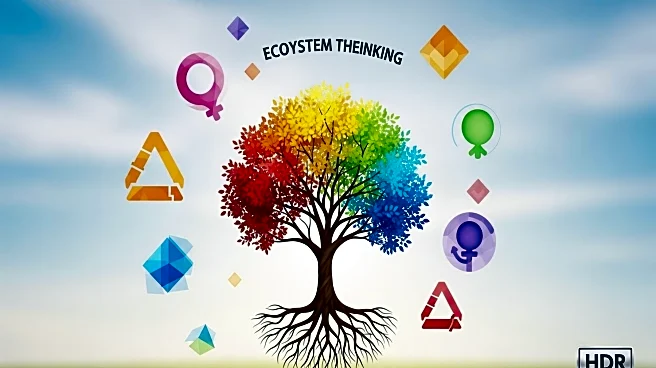What's Happening?
Vu Le, a prominent voice in the nonprofit sector, is advocating for a transformative approach to nonprofit governance and operations. In a recent interview, Le emphasized the need for nonprofits to move beyond traditional practices and adopt a mindset focused on equity and community-centric strategies. He criticized the current nonprofit model for its dependency on donor whims and the scarcity mindset that limits innovation. Le suggests that nonprofits should focus on broader societal goals, such as universal healthcare and education, rather than merely surviving. He also calls for boards to shift from 'power over' to 'power with' by including more diverse voices, particularly those from marginalized communities, in decision-making processes.
Why It's Important?
The nonprofit sector plays a crucial role in addressing social issues and advocating for change. Le's call for a shift in focus towards equity and community-centric practices is significant as it challenges the status quo and encourages nonprofits to be more effective in their missions. By adopting these practices, nonprofits can better address systemic inequalities and contribute to societal transformation. This approach could lead to more sustainable and impactful outcomes, benefiting marginalized communities and fostering a more equitable society. Additionally, by reimagining fundraising and governance, nonprofits can reduce dependency on traditional funding models and increase their resilience against political and economic pressures.
What's Next?
Le's vision for the nonprofit sector involves a long-term commitment to societal change, akin to conservative movements that fund initiatives over decades. He suggests that nonprofits should develop strategic plans that align with progressive values and work towards systemic change. This includes advocating for policies that address wealth inequality, climate change, and social justice. Nonprofits are encouraged to collaborate across sectors and engage in advocacy that challenges existing power structures. As more organizations adopt these practices, there could be a shift towards a more unified and effective nonprofit sector that is better equipped to tackle pressing social issues.
Beyond the Headlines
Le's critique of the nonprofit sector highlights deeper issues related to power dynamics and the role of philanthropy in perpetuating inequality. By encouraging nonprofits to examine the origins of donor wealth and engage in conversations about reparations, Le is pushing for a more ethical approach to philanthropy. This could lead to a reevaluation of how nonprofits operate and their role in societal change. Additionally, Le's emphasis on fighting against fascism underscores the political dimension of nonprofit work and the need for organizations to be proactive in defending democracy and civil rights.











